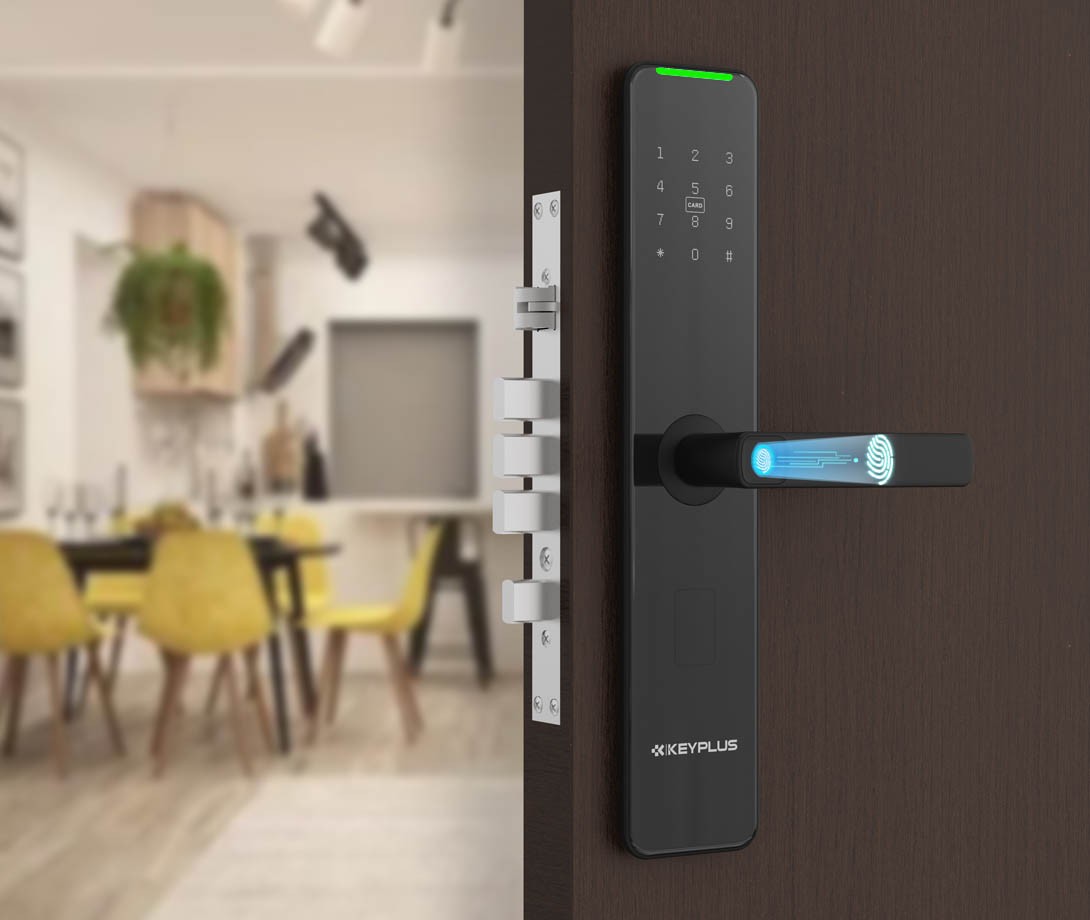Why Are Smart Door Locks So Expensive?
Smart door locks are one of the hottest trends in home security, offering keyless entry, remote access, and seamless smart home integration. But if you’ve shopped for one recently, you’ve probably noticed: They aren’t cheap.
A basic smart lock starts around 150,whilehigh−endmodelscancost 400 or more—far more than a traditional deadbolt. So, what justifies the high price?
In this guide, we’ll break down the real reasons smart locks are expensive, including:
- Advanced technology costs
- Security certifications & durability
- Brand reputation & smart home integration
- Installation & ongoing expenses
By the end, you’ll understand whether a smart lock is worth the investment—or if a cheaper alternative (like a keypad lock) might work just as well.
1. Smart Lock Technology: What You’re Paying For
Built-in Encryption & Cybersecurity
Unlike traditional locks, smart locks rely on Wi-Fi, Bluetooth, or Z-Wave to communicate with your phone or hub. This requires:
- Military-grade encryption (to prevent hacking)
- Regular firmware updates (to patch vulnerabilities)
- Secure cloud storage (for access logs)
Smartphone Integration & App Development
A good smart lock needs a well-designed app for:
- Remote locking/unlocking
- Guest access management
- Activity logs
Developing and maintaining these apps isn’t cheap—costs that get passed to consumers.
Power Efficiency & Battery Life
Smart locks run on batteries, but they must:
- Last 6-12 months on a single charge
- Have low-power modes to extend battery life
- Include emergency power options (like USB-C or 9V battery backup)
Cheaper locks often skimp here, leading to frequent battery changes.
2. Security Certifications & Durability
ANSI/BHMA Grading (A Must for High Security)
The best smart locks meet ANSI Grade 1 standards—the same as commercial-grade locks. This means:
- Stronger metals (anti-drill, anti-pick, anti-bump)
- Weather resistance (for outdoor use)
- Longer lifespan (100,000+ cycles)
Weatherproofing & Build Quality
A smart lock must withstand:
- Extreme heat & cold (-20°F to 150°F)
- Rain, snow, and humidity
- Everyday wear and tear
Cheaper models often fail in harsh climates, leading to malfunctions.
3. Smart Home Compatibility = Higher Costs
Works with Alexa, Google, Apple HomeKit
Premium locks integrate with:
- Voice assistants (“Alexa, lock my door.”)
- Security systems (Ring, ADT, SimpliSafe)
- Automation hubs (SmartThings, Home Assistant)
Each integration requires licensing fees & software development, increasing the price.
Wi-Fi vs. Bluetooth vs. Z-Wave
- Wi-Fi locks (most convenient but drain batteries faster)
- Bluetooth locks (better battery life but need a hub for remote access)
- Z-Wave locks (best for smart home systems but require a hub)
More connectivity options = higher cost.
4. Brand Reputation & Customer Support
You’re Paying for Reliability
Established brands charge more because:
- They offer better warranties (often 2-3 years)
- They have U.S.-based customer support
- They invest in long-term software updates
Budget brands often disappear in a few years, leaving you with an unsupported lock.
Professional Installation Options
Some companies offer white-glove installation services, which add to the overall cost but ensure proper setup.
5. Hidden Costs of Smart Locks
Battery Replacements
While most smart locks last 6-12 months on batteries, some drain faster (especially Wi-Fi models).
Additional Hubs May Be Needed
- Z-Wave locks require a hub.
- Bluetooth locks may need a Wi-Fi bridge for remote access.
Locksmith Fees (If DIY Goes Wrong)
If you install it incorrectly, you might need a pro to fix it (
75–150
).
6. Are Smart Locks Worth the Price?
YES, if you value:
Keyless convenience (no more lost keys)
Remote access (let in guests from anywhere)
Advanced security (real-time alerts, auto-locking)
Smart home integration (voice control, automations)
NO, if you:
Just want basic keyless entry (a keypad lock is cheaper)
Don’t use smart home tech
Live in a rental (unless landlord approves)
Final Verdict: Why Smart Locks Cost So Much
Smart door locks are expensive because they combine high-end security, advanced tech, and smart home integration—all while being built to last.
If you want the best convenience and protection, they’re worth the investment. But if you just need a simple keyless entry, a keypad lock (80–150) may suffice.
Have you bought a smart lock? Was it worth the price?
Post time: Apr-30-2025

